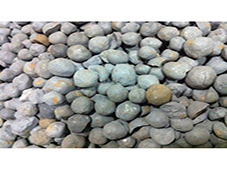
Coronavirus clampdown jolts Indian sponge iron makers

The manufacturing units are closed until at least 31 March. But the shutdown could be extended, weighing on sponge iron output and coal demand.
About 60pc of India's sponge iron capacity has been taken off line over the past few days, the executive director of the Sponge Iron Manufacturers Association, Deependra Kashiva, told Argus. "The percentage could dramatically increase in the coming days."
Mills are shutting down because of a slump in demand, labour shortages and transportation issues, not just because of lockdown orders from states, he said. Working capital has also emerged as an impediment.
"Whom will you produce for if there is no demand?" he asked, underscoring the concerns in the industry as the virus outbreak hits manufacturing and the broad economy. The association is reaching out to the government for relief measures.
The coronavirus outbreak could put more pressure on the Indian economy, which grew at its slowest pace in more than six years in the October-December quarter.
The lockdown has already hurt industries such as cement and port operations. At least two Indian ports, Karaikal and Gangavaram, declared force majeure this week, as the outbreak complicates port operations and hits business. Lockdowns in several coastal states are disrupting operations at other ports.
Cement manufacturing operations have already been stopped in several states, cutting cement sales and demand for coal. Coal and petroleum coke are key fuels used by cement companies.
Sponge iron mills are key consumers of South African NAR 5,500 kcal/kg coal. Their closure comes as South Africa's mining industry prepares for a 21-day lockdown starting from midnight on 26 March as part of efforts to control the spread of the coronavirus.
Sponge iron firms, which consume coal, largely prefer the NAR 5,500 kcal/kg South African variety because of its fixed carbon content of about 52pc. But Indian mills were exploring alternatives to South African coal amid higher prices a few months ago.
Sponge iron is made by directly reducing iron ore by using a reducing gas or thermal coal in an electric arc furnace, hence its alternative name of direct-reduced iron (DRI). Most of India's gas-based sponge iron production is consumed captively as an input for processed steel products, while merchant sales of sponge iron come mostly from coal-based units.
India's total DRI production capacity is 46mn t/yr, with coal-based units accounting for more than 70pc of this. The country's production rose by 1.28mn t on the year to 35.34mn t in 2019, World Steel Association data show. The sponge iron industry imports 20mn-25mn t/yr of thermal coal. At least half of the coal-based capacity relies on seaborne supplies, especially from South Africa.
The lockdown in several Indian states is likely to result in a build-up of coal stocks and affected companies may delay making fresh purchases, weighing further on imports. Still, the South African coal stocks at ports could well be enough to feed the reduced sponge iron production capacity, an industry participant said, without giving an estimate of the inventory level at the ports.
By Saurabh Chaturvedi


Trump weighs using $2 billion in CHIPS Act funding for critical minerals

Codelco cuts 2025 copper forecast after El Teniente mine collapse

Electra converts debt, launches $30M raise to jumpstart stalled cobalt refinery

Barrick’s Reko Diq in line for $410M ADB backing

Abcourt readies Sleeping Giant mill to pour first gold since 2014

Nevada army depot to serve as base for first US strategic minerals stockpile

SQM boosts lithium supply plans as prices flick higher

Viridis unveils 200Mt initial reserve for Brazil rare earth project

Tailings could meet much of US critical mineral demand – study

Kyrgyzstan kicks off underground gold mining at Kumtor

Kyrgyzstan kicks off underground gold mining at Kumtor

KoBold Metals granted lithium exploration rights in Congo

Freeport Indonesia to wrap up Gresik plant repairs by early September

Energy Fuels soars on Vulcan Elements partnership

Northern Dynasty sticks to proposal in battle to lift Pebble mine veto

Giustra-backed mining firm teams up with informal miners in Colombia

Critical Metals signs agreement to supply rare earth to US government-funded facility

China extends rare earth controls to imported material

Galan Lithium proceeds with $13M financing for Argentina project

Kyrgyzstan kicks off underground gold mining at Kumtor

Freeport Indonesia to wrap up Gresik plant repairs by early September

Energy Fuels soars on Vulcan Elements partnership

Northern Dynasty sticks to proposal in battle to lift Pebble mine veto

Giustra-backed mining firm teams up with informal miners in Colombia

Critical Metals signs agreement to supply rare earth to US government-funded facility

China extends rare earth controls to imported material

Galan Lithium proceeds with $13M financing for Argentina project

Silver price touches $39 as market weighs rate cut outlook

















